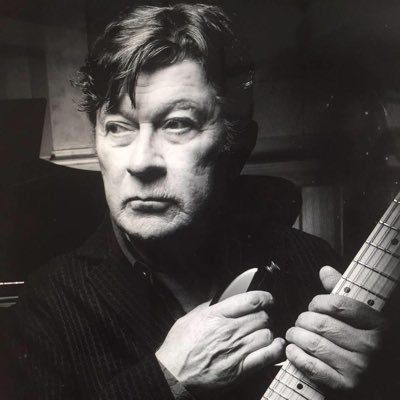
Robbie Robertson, guitarist and songwriter from The Band and the man who had worked extensively with Bob Dylan and the film director Martin Scorsese, has passed away at the age of 80. The Canadian musician’s manager Jared Levine said that he had died on Wednesday 9th August in Los Angeles, California after a long illness.
Born in Toronto in 1943, Robbie Robertson’s career in music began in earnest when at the age of 16 he joined the rockabilly icon Ronnie Hawkins’ backing band The Hawks as guitarist. It was here that he first played with drummer Levon Helm, keyboardist Richard Manuel, organist Garth Hudson, and bassist Rick Danko with whom he would form the Band in 1967.
In the interim, Robbie Robertson had been present at a couple of the more (in)famous moments in the history of popular music in the 1960s. He was part of Bob Dylan’s backing band on the legendary 1966 world tour when Dylan “went electric”, an act that arguably altered the course of contemporary music forever. And after an audience member at the Manchester Free Trade Hall date on that tour had called Dylan “Judas”, it was Robertson who helped crank out the defiant opening riff to what was a truly incendiary ‘Like A Rolling Stone.’
Signed to Capitol Records in 1968, the Band came to prominence with their first two albums, Music From Big Pink and The Band, both born of blues and country music and records often regarded as being the source at which the Americana genre can be found.
These albums contain three of the songs for which Robbie Robertson will be most remembered – ‘The Weight’, ‘The Night They Drove Old Dixie Down’, and ‘Up On Cripple Creek.’ And it was these albums that provided me, albeit a few years later, with my first introduction to Robbie Robertson and the music of the Band. They further collaborated with Bob Dylan on his vastly underrated 1974 album Planet Waves and the following year’s The Basement Tapes (albeit a record that had originally been recorded together eight years earlier). And these four records in particular, alongside the Band’s seventh studio album, 1975’s Northern Lights – Southern Cross formed an integral part of what was the soundtrack to my formative years.
In 1974 I had the great fortune to see the Band play in concert, at the old Wembley Stadium in London on an incredible bill that also included Crosby, Stills, Nash and Young, and Joni Mitchell. That September afternoon they played all three of the aforementioned songs (the latter as an encore) alongside other Band staples such as ‘Stage Fright’, ‘Across The Great Divide’, and their cover of Dylan’s ‘I Shall Be Released.’ The original quintet never played in this country again and were to perform together for the very last time in March 1978 making that Wembley show seem something even more special to me.
In the subsequent decades, Robbie Robertson forged a most estimable solo career as well as working with other artists as diverse as Tom Petty and the Heartbreakers, Ringo Starr, Neil Diamond, U2, Maria McKee, The Blue Nile, and the Red Road Ensemble with whom he collaborated for a TV documentary, the Native Americans. Robertson had originally learned music from his mother’s side of the family, who were Mohawk and lived on the Six Nations of the Grand River reserve in Canada.
As indicated above, he also maintained a longstanding creative relationship with Martin Scorsese and scored several of Scorsese’s films, including The Colour Of Money, The King Of Comedy, The Departed, The Irishman and the director’s latest film Killers of the Flower Moon which is scheduled for release later this year.
But it is for his earlier work with the Band and Bob Dylan and that unforgettable day at Wembley Stadium in 1974 that I will always remember Robbie Robertson.
Main photo courtesy of The Official Robbie Robertson Facebook Page
